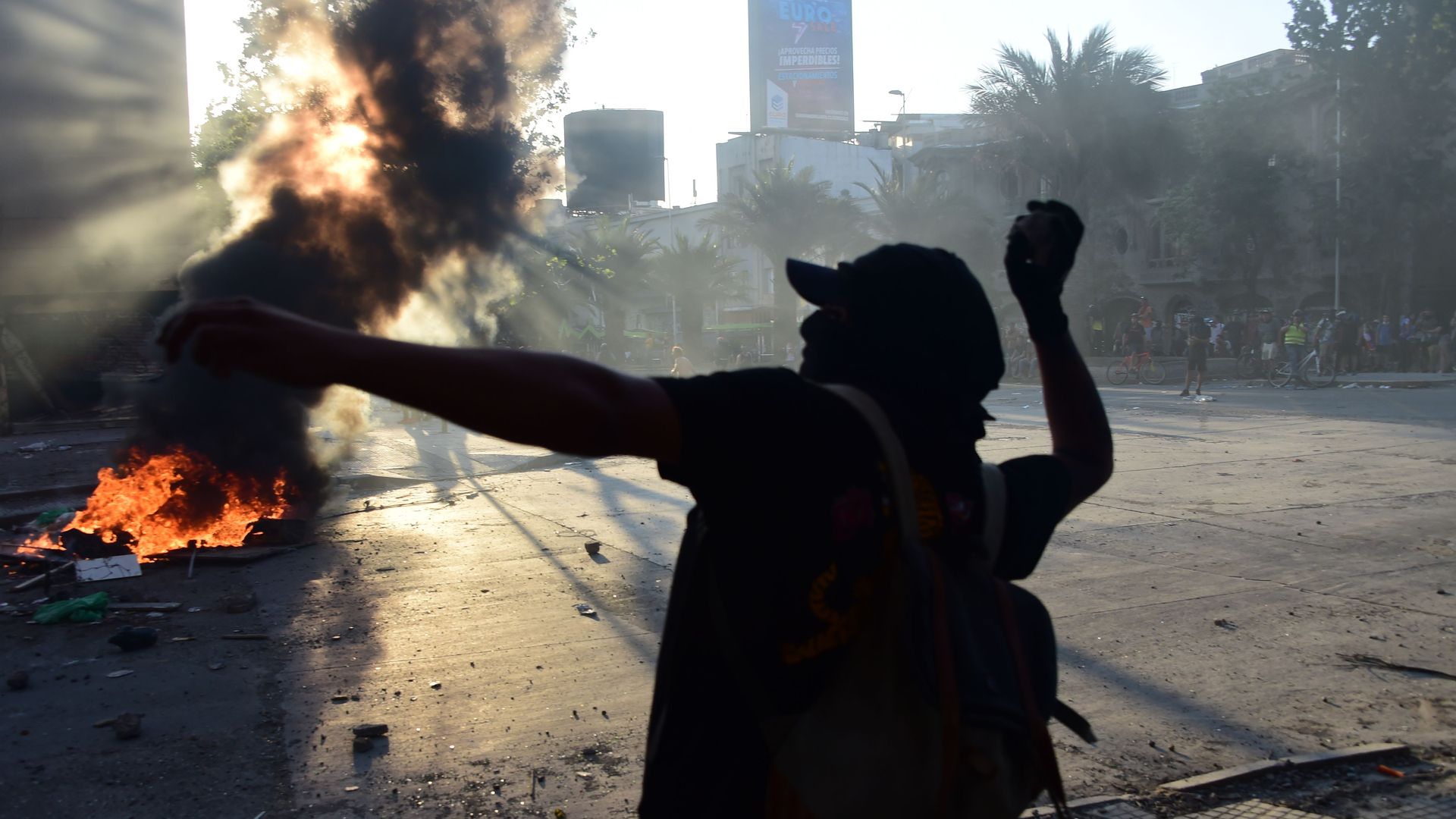Chile's grim economic outlook
Add Axios as your preferred source to
see more of our stories on Google.

A demonstrator throws a stone at riot police on Nov. 13, 2019. Photo: Johan Ordonez/AFP via Getty Images
The unrest in Chile could not have come at a worse time for the country's investors, who had already been facing a wave of economic uncertainty.
What's happening: The economy slowed from 4% growth last year to less than 2% in each of the first two quarters of 2019.
- While Q3's reading could improve, the disruption from ongoing protests is likely to significantly dent any recovery hopes in Q4 and make the IMF's 2.5% target this year unlikely.
Chile's central bank is facing a lose-lose scenario.
- The central bank already has cut rates by 125 basis points this year to a record low of 1.75%.
- Plus, with Chile's peso falling to its weakest level on record against the dollar — more than 800 pesos per dollar, becoming the world's second weakest EM currency behind Argentina — inflation threatens to make an unwelcome comeback.
Between the lines: With that in mind, it will be difficult for the central bank to cut rates to help stimulate the decelerating economy, Win Thin, global head of currency strategy at Brown Brothers Harriman, writes in a note to clients.
Chilean stocks have taken it on the chin. So far this year, MSCI's Chile index, typically a stable performer, has fallen nearly 26% year to date, while MSCI's overall emerging market index has risen nearly 10%.
The bottom line: "While we would normally expect Chilean equities to start outperforming, we cannot ignore the negative impact of prolonged political uncertainty and so expect the underperformance to continue," Thin says.
Go deeper:
